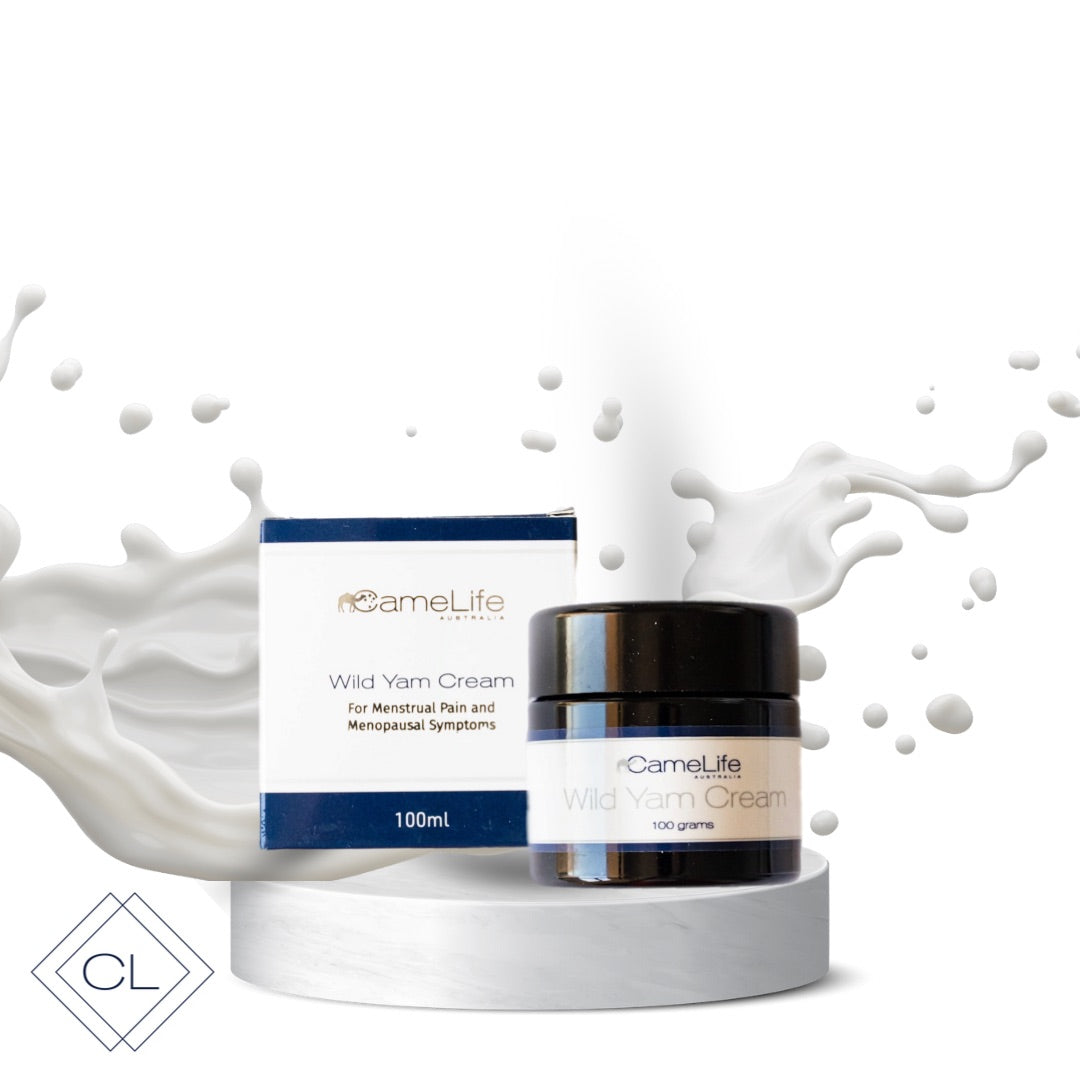Natural Sleep Solutions for Menopause: Can Wild Yam Help?

If the days of falling asleep within minutes of your head hitting the pillow feel like a distant memory while navigating menopause, you're not alone. Millions of women find themselves tossing and turning, wondering if they'll ever get a decent night's sleep again.
Think of menopause as your body's way of renovating itself, except the construction crew decided to work the night shift. The hormonal changes happening during this transition affect virtually every system in your body, and unfortunately, sleep is one of the biggest casualties.
The hormone rollercoaster
Your hormones have been quietly managing your sleep for decades, and now they're basically giving their two weeks' notice. Estrogen, which has been your sleep's best friend, starts declining and fluctuating wildly. This is the hormone that has been helping regulate your body temperature, supporting the production of serotonin (which your brain needs to make melatonin), and keeping various neurotransmitters in balance. When estrogen levels drop, you might notice it's harder to fall into that deep, restorative sleep.
Then there's progesterone, often called nature's sleeping pill. This hormone has natural calming effects on your brain, helping you drift off peacefully. As progesterone levels decline, many women find themselves lying awake, minds racing, wondering why sleep feels so elusive. Even more concerning, low progesterone might contribute to sleep apnea by affecting the muscles in your throat.
Finally, there's melatonin, your body's internal sleep timer. This hormone naturally decreases as we age, but the decline in estrogen and progesterone can make this even worse. It's like your body's bedtime alarm clock is getting quieter and quieter.
Hot flashes are the midnight disruptors
Hot flashes and night sweats are the most notorious sleep thieves during menopause. One minute, you're comfortably tucked under your covers, and the next, you're kicking off blankets, fanning yourself, and wondering if someone cranked up the thermostat.
These sudden heat surges happen because your hypothalamus, which acts like your body's thermostat, becomes hypersensitive to tiny temperature changes. When estrogen levels drop, this brain region essentially becomes overly dramatic, triggering intense heat waves even when your body temperature has barely budged.
Sometimes, the relationship between hot flashes and sleep disruption works both ways. While hot flashes definitely wake you up, being awakened by other factors might actually trigger a hot flash. This means that improving your overall sleep quality could potentially reduce how often you experience these nighttime heat waves.
Natural solutions that work
There are plenty of evidence-based strategies that can help you reclaim your sleep without relying on prescription medications:
Sleep hygiene basics
Before diving into supplements or treatments, nail down the fundamentals. Keep your bedroom cool to help combat night sweats. Invest in breathable cotton sleepwear and layers you can easily adjust throughout the night. Stick to a consistent sleep schedule, even on weekends. Your body craves routine, especially during times of hormonal chaos. Create a relaxing bedtime ritual that signals to your brain it's time to wind down. This might include reading, gentle stretching, or listening to calming music.
Watch your evening habits, too. Avoid large, spicy meals close to bedtime as they can trigger hot flashes and indigestion. Limit liquids before bed to reduce nighttime bathroom trips. And yes, this means cutting back on that evening glass of wine. Alcohol might make you feel drowsy initially, but it actually disrupts your sleep cycles later in the night.
Harness the mind-body connection
Stress management becomes crucial during menopause, and mind-body practices can work wonders. Regular meditation, yoga, or even simple deep breathing exercises can help calm your nervous system and reduce the intensity of hot flashes.
Yoga Nidra, a form of guided meditation, deserves special mention. Some practitioners swear that 45 minutes of this practice feels like three hours of regular sleep. Even if that sounds too good to be true, the deep relaxation it provides can certainly improve your sleep quality.
Evidence-based therapies
If sleep problems persist despite lifestyle changes, consider Cognitive Behavioural Therapy for Insomnia (CBT-I). This approach helps you identify and change negative thought patterns and behaviours around sleep.
Certain supplements have shown promise, too. Melatonin can help with minor sleep difficulties, especially if your natural production has declined. Magnesium promotes relaxation and can be particularly helpful if you're dealing with restless legs or muscle cramps.
The Wild Yam Cream option
Wild yam cream is a natural remedy that has gained quite a following, with many women swearing by its ability to balance hormones and improve sleep.
While scientific research is still minimal, wild yam has been used in various traditional medicine systems for ailments such as menstrual cramps, childbirth issues, digestive problems, and rheumatism. Its root contains a compound called diosgenin, which is classified as a phytoestrogen, a plant substance that some believe may influence human hormones.
Additionally, the act of taking time for self-care, massaging cream into your skin each night, can be genuinely relaxing and stress-reducing.
Safety considerations
While wild yam is generally considered safe for short-term use, it's not risk-free. It should be avoided during pregnancy and breastfeeding, and women with hormone-sensitive conditions like breast cancer, endometriosis, or uterine fibroids should steer clear, as it might act similarly to estrogen.
Trying to improve your sleep
Always focus on the fundamentals first: good sleep hygiene, stress management, and healthy lifestyle habits. If problems persist, don't hesitate to consult with a healthcare provider about other options, including hormone replacement therapy if appropriate for your situation. Camelife is also here to help you try wild yam cream for menopause relief, to lessen the impact of your symptoms.
Remember, this phase of life is temporary, even though it might not feel that way at 3 AM. With patience, the right strategies, and professional support when needed, you can absolutely improve your sleep quality and overall well-being during menopause. Sweet dreams are still possible; you just might need to approach them a little differently than you used to.





Leave a comment